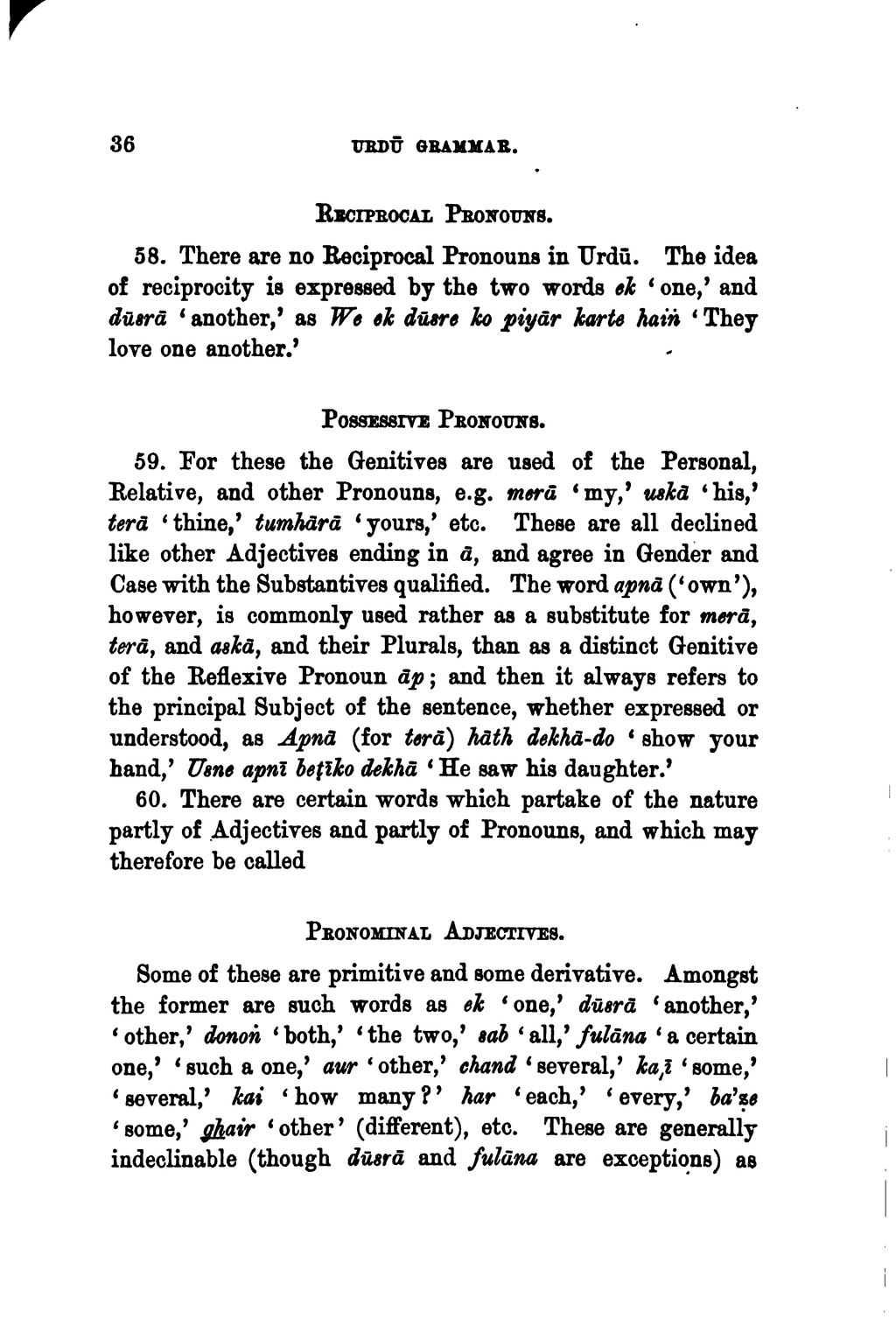Reciprocal Pronouns.
58. There are no Reciprocal Pronouns in Urdū. The idea of reciprocity is expressed by the two words ek 'one,' and dūsrā ' another,' as We ek dūsre ko piydr karte haiṅ 'They love one another.'
Possessive Pronouns.
59. For these the Genitives are used of the Personal, Relative, and other Pronouns, e.g. merā 'my,' uskā 'his,' tera 'thine,' tumhard 'yours,' etc. These are all declined like other Adjectives ending in ā, and agree in Gender and Case with the Substantives qualified. The word apnā ('own'), however, is commonly used rather as a substitute for merā, terā, and askā, and their Plurals, than as a distinct Genitive of the Reflexive Pronoun āp; and then it always refers to the principal Subject of the sentence, whether expressed or understood, as Apnā (for terā) hāth dekhā-do' show your hand,' Usne apnī betīko dekhā 'He saw his daughter.'
60. There are certain words which partake of the nature partly of Adjectives and partly of Pronouns, and which may therefore be called
Pronominal Adjectives.
Some of these are primitive and some derivative. Amongst the former are such words as ek 'one,' dusrā 'another,' 'other,' donoṅ 'both,' 'the two,' sab 'all,' fulana 'a certain one,' 'such a one,' aur 'other,' chand 'several,' ka,ī 'some,' 'several,' kai 'how many?' har 'each,' 'every,' ba'ze 'some,' ghair 'other' (different), etc. These are generally indeclinable (though dusrā and fulāna are exceptions) as
